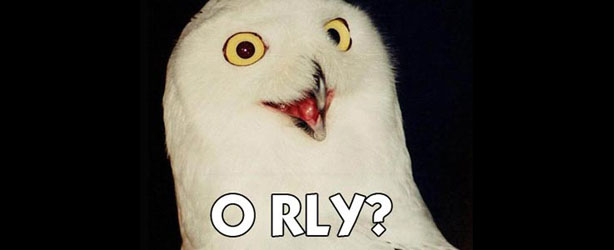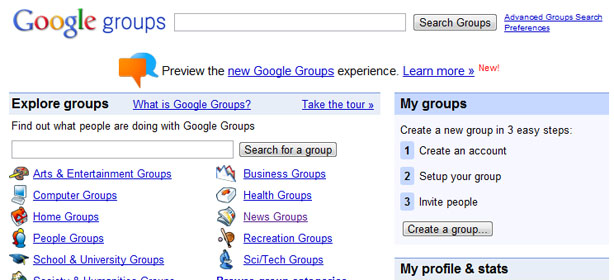
Researching Citations On The Web
According to Diamond, the next checkbox is frequency; making sure that the word is actually used widely and regularly. 'Our mission statement is to reflect the language as it's used,' explains Diamond, 'we're not here to make judgments about usage or whether it's correct or not; we're just describing the language, not prescribing how it should be used. As such, we want evidence that the word is used effectively and in a fairly widespread arena of the English-speaking world – whether that's online, or in spoken English or in formal written documents is not important in terms of our criteria.'
The third and final tickbox is the way in which the word is used. 'I always characterise this as unselfconscious usage,' says Diamond, 'which is where the word is used with the expectation that the audience being addressed will understand; it's not immediately explained.'

Regular forum users probably recognise this fellow, but he'll need to make it into the outside world to get 'RLY' into the OED
So, let's say you've decided that 'ROFL' meets all the criteria above. The next step is researching the history of the phrase, which involves trying to find the first recorded instance of it, as well as trying to find early quotes that place it in context. This is tricky enough when you have several centuries' worth of books through which to trawl, but how do you keep track of net-speak when so many web pages get shut down, and how do you preserve your references?
'It can be very ephemeral,' says when describing the nature of the Web. 'One big advantage we currently have is that a lot of these things originated on the Usenet. This is still going obviously, but it's less used now I think it's fair to say, but it was certainly the forerunner of a lot of the social networking applications we have now. And, at least at this point in history, that's reliably archived in a number of places, so we can currently get dateable quotations from the Usenet.'
Of course, there are also resources such as The Way Back Machine that keep an archive of many past webpages that are no longer available. However, you still have the issue of preserving your evidence. How do you provide evidence of your reference if the website has been taken down and there's no archive available?

Archives of old Usenet posts can still be retrieved via services such as Google Groups
'Sometimes we are relying, rather touchingly, on printing out on the date of access,' admits Diamond, 'and we can only then date a quotation from the date of access, keeping that in our own archives. We will mark the quotation as "OED archive" – the idea being that it should be verifiable in perpetuity, if you like, but in those cases if someone wanted to verify that it really was used on that date in this way, they would actually have to contact us and say "prove it."'
So, LOL and OMG have now made it into the online dictionary, but there have been plenty of variations on LOL the last decade or so. We mentioned ROFL, ROFLMAO, ROFLcopter and Lollerskates to Diamond, and asked just what it would take for them to be included in the dictionary. This may seem a bit facetious, but it's an honest question – the former two in particular are now widely used on the Internet and are also widely understood by millions of people. At what point would they be considered an official part of the English language?

MSI MPG Velox 100R Chassis Review
October 14 2021 | 15:04









Want to comment? Please log in.